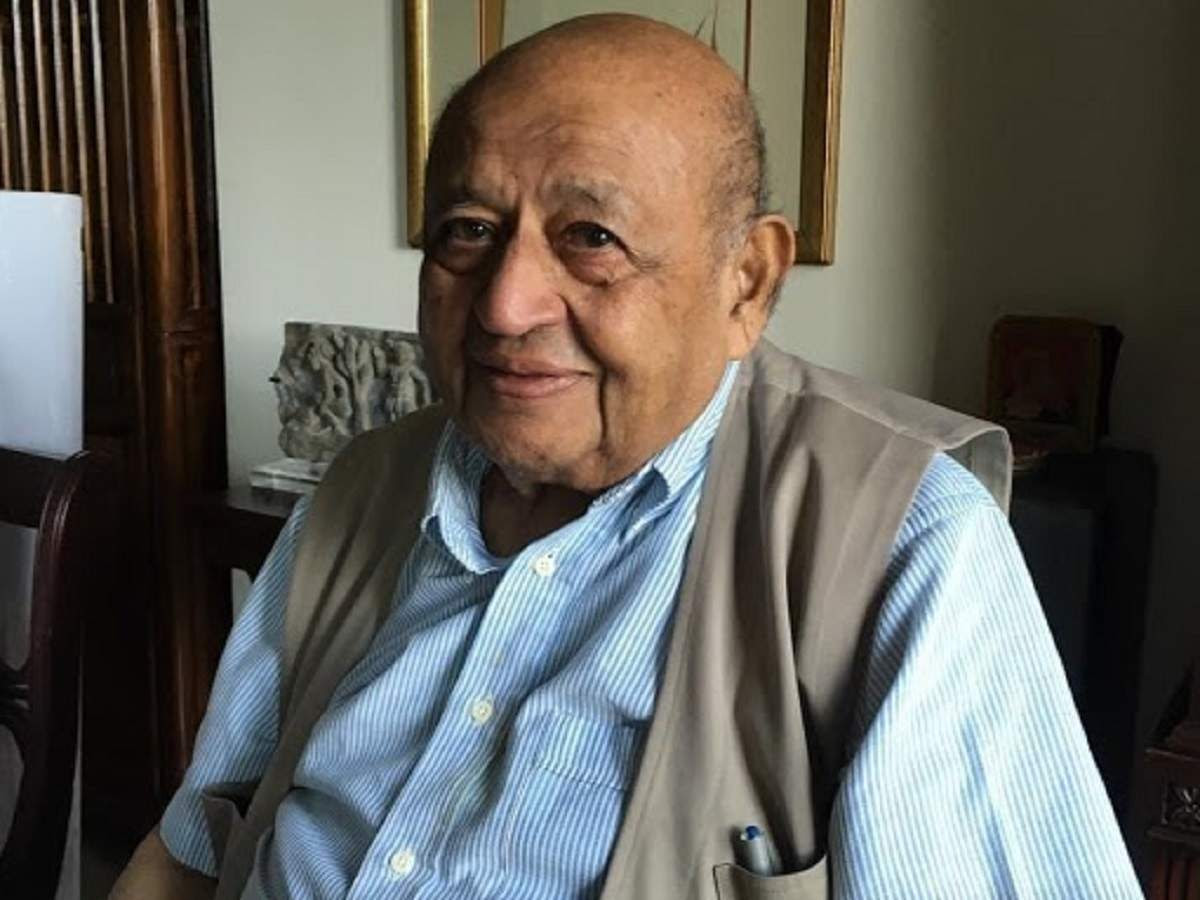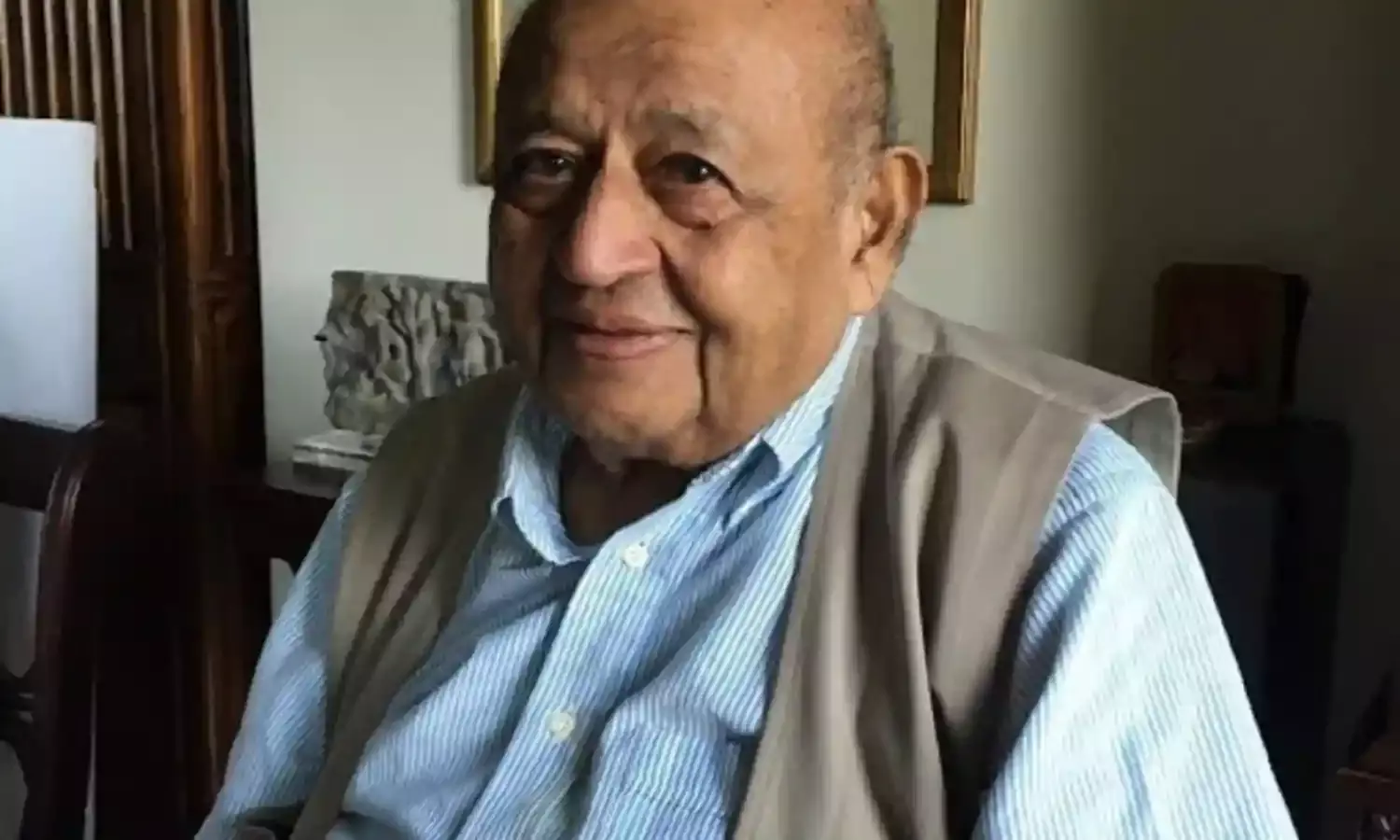Decisions By A Prime Minister Which An Ambassador Reversed
Former Ambassador Shankar Bajpai reversed 2 decisions
Not many ambassadors have lived to tell the story but Ambassador to Washington, Shankar Bajpai, who died from Covid last year, can claim the credit for having two of Rajiv Gandhi’s dramatic foreign policy initiatives reversed. Since I was the journalist covering both instances, let me begin with the first story.
Suddenly last week Polisario, or Western Sahara was across two pages of The Economist. This triggered my memory. America’s willingness to stand with its friends, in this instance Morocco, was on test. I had visited Polisario country after disengaging myself from the media team which had accompanied the Prime Minister to Algeria in June 1985, on his way to meet President Reagan in Washington.
Just the previous month, Gandhi had visited Mikhail Gorbachev, the new Secretary General of the Soviet communist party. Algerian President, Chadli Bendjedid, totally in the Soviet camp, discussed the non-aligned movement and, holding Gandhi’s hand, stressed the importance of Western Sahara and the liberation struggle waged for nine years by the Polisario Front. Gandhi was obviously impressed.
Until the death of Spanish dictator Francisco Franco in 1975, the territory was named Spanish Sahara. After Franco it became the most hotly contested real estate between a West backed Morocco and the Polisario, the latter supported entirely by Algeria at a time when the Cold War was at its fiercest.
After Rajiv Gandhi’s meeting with Bendjedid when the Polisario decision was tacitly taken, I decided to stay back in Algiers. Next morning I caught the flight to Tindouf, 1900 kms south-west, deep in the Sahara desert. The capital of Polisario was a fairytale city consisting of rows upon rows of tents. It was a poor man’s version of the tented township Shah of Iran had erected near Shiraz to celebrate 2,500 years of Persian civilization.
My quarter was a tent in exquisite taste. Mercifully it had an attached toilet. Others, highest and the lowest, went to the sand dunes for their ablutions. The purest rays of “Shams”, the sun, burnt everything, which then became indistinguishable from the sand. The leader of Polisario, Mohamed Abdelaziz was a charismatic figure and something of a favourite with Cuba’s Fidel Castro. Polisario recruits were being trained in Cuba.
Though short on cash, the Saharwi Republic opened an embassy in New Delhi. But within months, a very shaken Polisario representative came to me. “Your government does not talk to me.” It would have been embarrassing to close the embassy, but a defacto de recognition was on. The Polisario story faded out slowly from 1985 to 2000 when Jaswant Singh as foreign minister finally closed the embassy.
Well, the Polisario man who came to me with tears in his eyes, may today find his spirits uplifted. The powers that backed Morocco’s case on Western Sahara are giving out signals that they may no longer be interested in playing imperialism. In fact, Russia and the US are inching towards a referendum in the territory.
A hilarious image in my mind is that of Ambassador K.V. Rajan, trapped right in the middle of this sport of recognition and non recognition. After Gandhi had communicated his positive decision to Bendjedid, a high-powered delegation of the Polisario floated into the Prime Minister’s chambers to thank him. It was all sealed but the decision would only be announced after the Washington visit for obvious reasons.
During the return journey, Foreign Secretary Ramesh Bhandari called up ambassador Rajan. “Hold your horses on the Polisario issue; there has been a change of heart.” But before the “change of heart” had been communicated, an elated Bendjedid invited Rajan and kissed him on both his cheek in true Arab style. When an ambassador is in the embrace of the President of a country of his (the ambassador’s) accreditation, he must not flinch. Just as Bendjedid began to celebrate, word reached Rabat. King Mohammad V was hopping mad. Former foreign secretary, M.K. Rasgotra was flown to Rabat to mollify the King. It was an opera on a high scale.
John Kennedy’s handling of the Cuban missile crisis yielded a classic, Essence of a Decision, by Professor Grahame Allison. What kind of scholarship would be possible on the decision and indecision under South Block’s masterly handling of the Polisario affair?
Today, let me add in parenthesis, the Polisario story is on the cusp of a change once again. And this change is a function of basic rethinking in Washington, the first glimpse of which was available in President Obama’s interview to Atlantic magazine in March 2016. He talked of “America’s inability to be everywhere.”
Another dramatic decision which was abruptly reversed also carried Rajiv Gandhi’s imprimatur. Ambassador Bajpai played a key role in having this decision reversed too.
A year after the Polisario fiasco, the US bombed Benghazi and Tripoli in April 1986, killing among scores of others, Qaddafi’s baby daughter. This somewhat inexplicable military action caused the foreign ministers of non aligned countries in a conference in New Delhi to sit up and take note.
With Rajiv Gandhi’s “wholehearted” endorsement, a delegation of four foreign ministers, with India’s Bali Ram Bhagat as leader, left for Tripoli to commiserate with Qaddafi. After what Bhagat thought was a successful meeting in Tripoli, Bhagat possibly expected to be feted by the Prime Minister. Maybe the foreign office would hold a press conference.
Unbeknown to Bhagat, another script was being played out between Shankar Bajpai and the foreign office. Bajpai posed the question starkly: was India willing to forgo a flourishing relationship with Reagan who, having laid the red carpet for Gandhi in June 1985 was laying yet another one in October 1987? And all in exchange for a “sentimental visit to Tripoli”?
The answer to Bajpai’s query was contained in Rajiv Gandhi’s decisive action: Bhagat was shown the door out of the foreign office.






